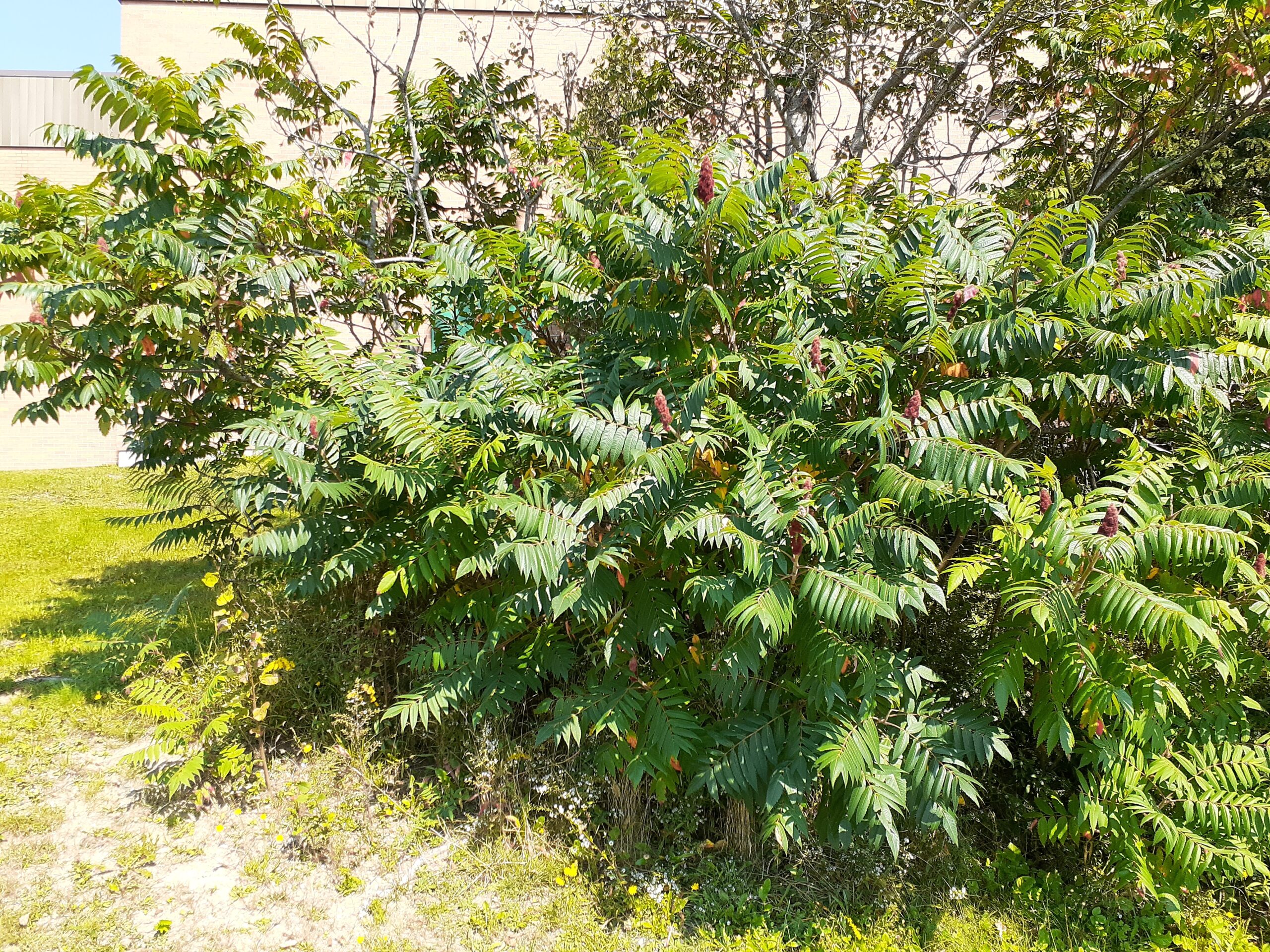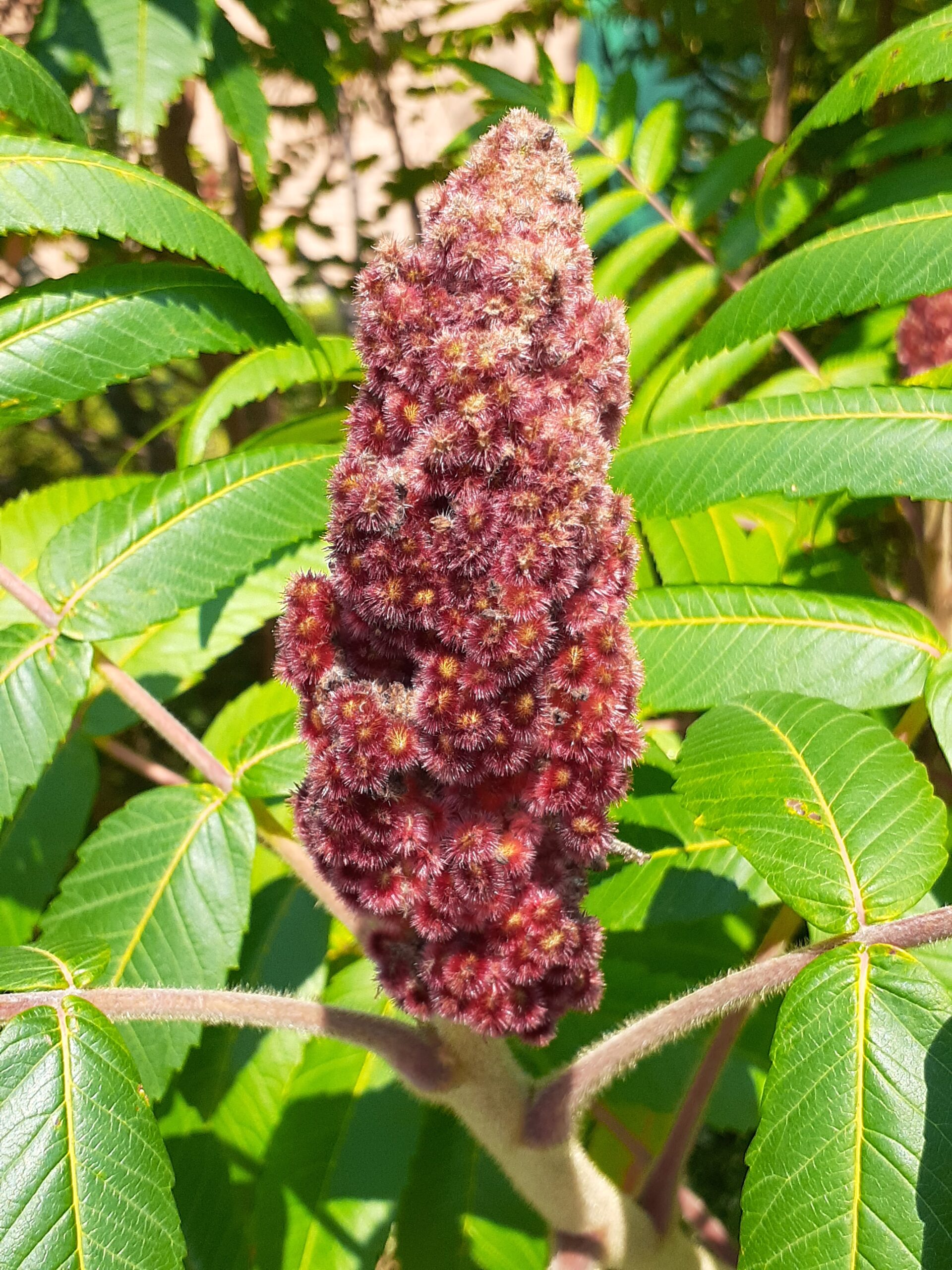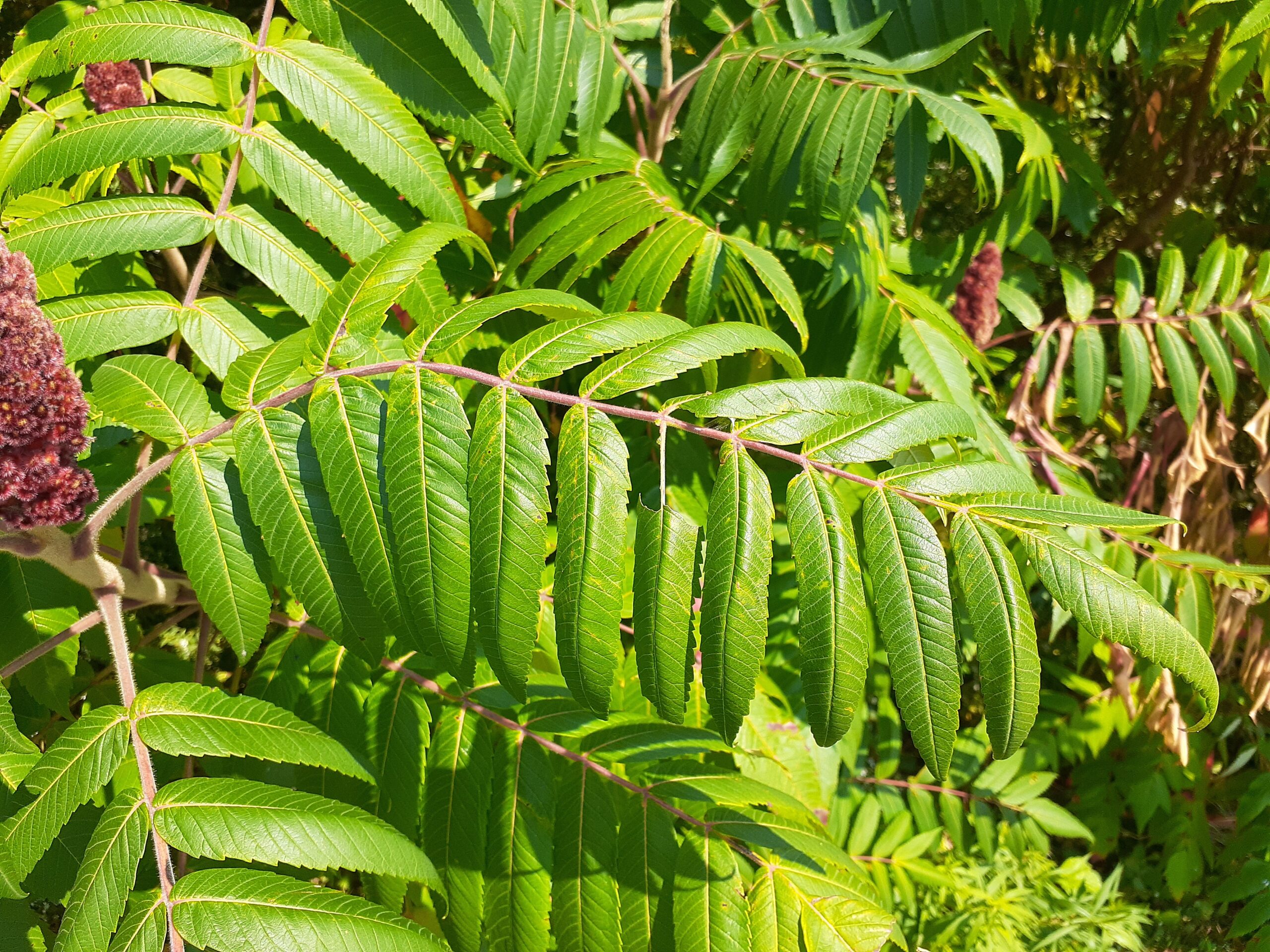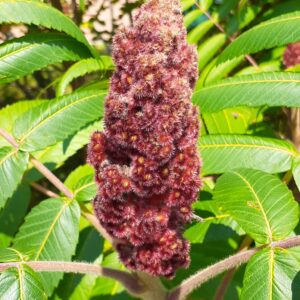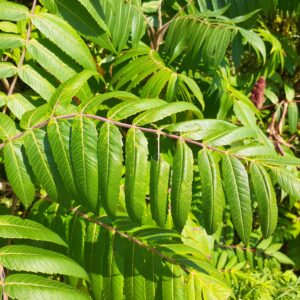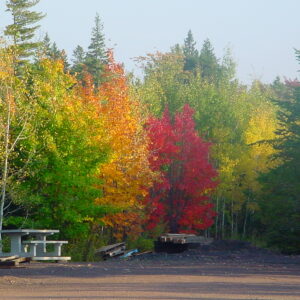Staghorn Sumac
(Velvet Sumac)
Rhus Typhina
Native to the maritime provinces and beyond. The name is derived from the wooly textured branching and structure that resembles a stag’s antlers. This small tree (or large shrub) grows fast and tends to colonize areas with its extensive runners and root sprouts. An ornamental tree with leaves that turn orange and scarlet in fall. Tall erect clusters of red, fuzzy fruits that persist through the winter providing a valuable food source for birds. Male and female flowers are on separate trees and provide a source of nectar for bees. Only female trees will don the attractive red fruits. Plant at least 2 trees together to increase chance of fruit production.
Please note, that my trees are grown from seed so sex of tree is unknown until maturity.
Additional information
| Foliage | Deciduous |
|---|---|
| Locale | Native to New Brunswick, Native to North America |
| Height | Small (under 30ft) |
| Width | Narrow |
| Form | Irregular, Multi Stemmed |
| Growth Rate | Fast |
| Longevity | Moderate (50 to 100 years) |
| Hardiness Zones * | 4, 5 |
| Sun Exposure | Full Sun (over 6 hrs) |
| Soil Preferences * | Moist, Slightly Acidic, Well Draining |
| Soil Tolerances | Clay, Dry, Slightly Alkaline |
| Other Tolerances | Occasional Drought, Road Salt, Walnut Toxicity |
| Ornamental Interest | Fruit, Leaves (colour) |
| Wildlife Value | Bees (flowers), Birds (fruits/seeds), Butterflies (flowers), Insect Pollinators (flowers), Large Mammals (leaves) |
| Human Value | Carpentry (wood) |
| Seed Collection | Personally in NB |
| Planting Considerations | Late Leaf Out, Produces Suckers, Shallow Roots |


